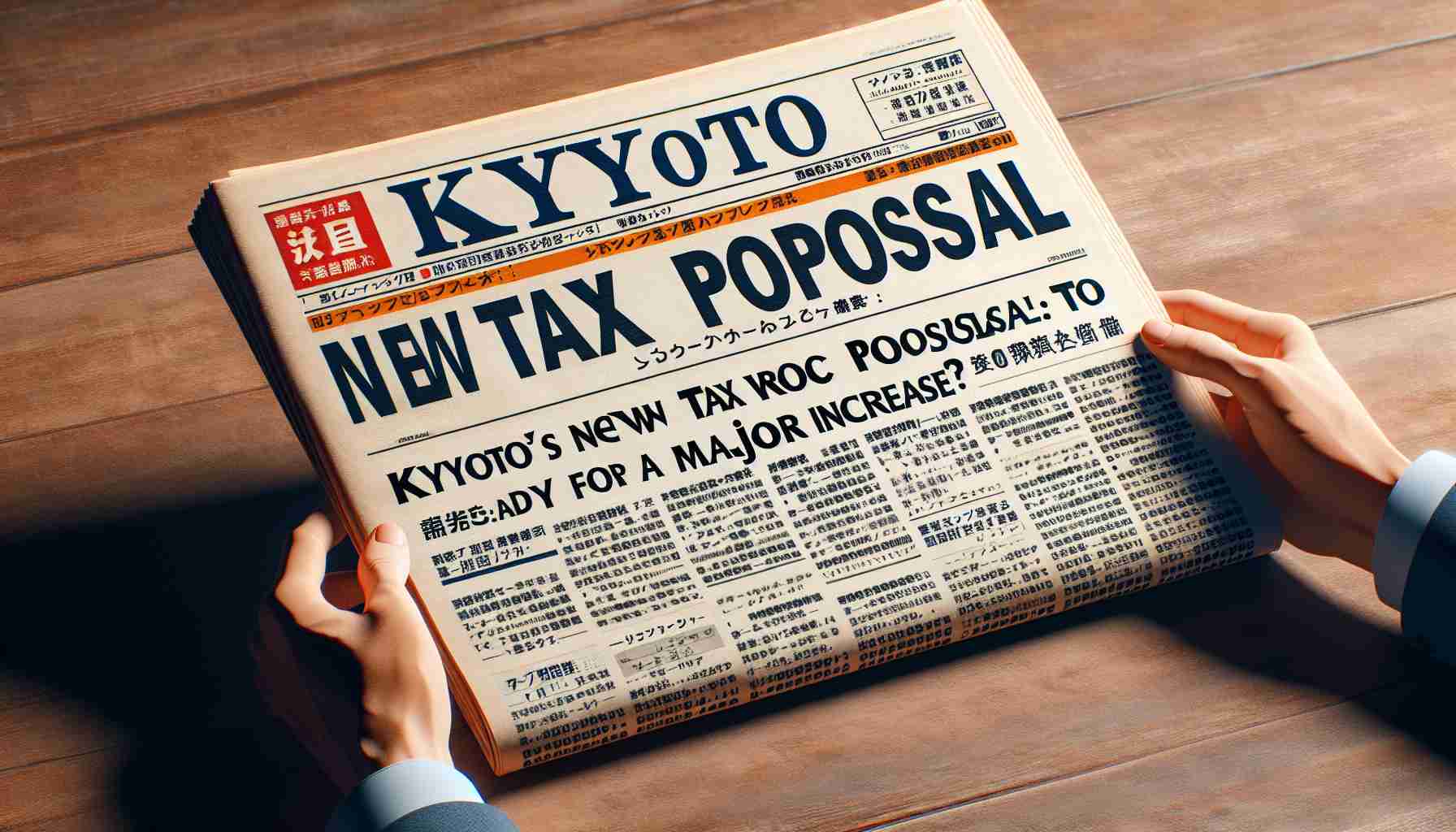Kyoto City is poised to implement significant changes to its accommodation tax. On the 14th, Mayor Takaharu Matsui announced an ambitious plan to raise the lodging tax limit to 10,000 yen per night, aiming for this adjustment to take effect in March 2026.
In a recent press conference, Mayor Matsui emphasized the necessity of the changes in light of recovering tourism post-pandemic, highlighting that issues stemming from overtourism are resurfacing. He expressed the importance of ensuring that the local population feels the benefits of tourism as a contributor to their quality of life.
The proposed revisions will categorize the accommodation tax into five tiers instead of the current three. For stays under 6,000 yen, the tax will remain at 200 yen. Stays between 6,000 and 20,000 yen will incur a tax of 400 yen, while those booking rooms priced between 20,000 and 50,000 yen will pay 1,000 yen. Stays costing between 50,000 and 100,000 yen will attract a tax of 4,000 yen, and guests paying more than 100,000 yen will face the highest rate of 10,000 yen.
If the ordinance is approved in the February assembly, Kyoto’s tax revenue could exceed 130 billion yen, a sum intended to address challenges related to congestion and waste management from tourism. Mayor Matsui noted that with the rise in luxury hotels, implementing a tax that reflects guests’ financial capacity is increasingly vital for the sustainable development of Kyoto as a cultural city.
Kyoto’s New Accommodation Tax: What You Need to Know
Kyoto City is on the verge of implementing a substantial change to its accommodation tax structure, indicating a shift that aims to balance tourism growth with local community benefits. Mayor Takaharu Matsui has announced plans to raise the lodging tax limit to 10,000 yen per night, with an expected start date in March 2026. This change comes in response to the resurgence of tourism following the pandemic and the challenges posed by overtourism.
Overview of the New Tax Structure
The proposed revisions will reorganize the accommodation tax into five distinct tiers, which is a significant change from the current three-tier system. Here’s how the new tax brackets will work:
– Under 6,000 yen: 200 yen tax
– 6,000 – 20,000 yen: 400 yen tax
– 20,000 – 50,000 yen: 1,000 yen tax
– 50,000 – 100,000 yen: 4,000 yen tax
– Over 100,000 yen: 10,000 yen tax
This tiered system aims to create a more equitable taxation framework, ensuring that higher-paying tourists contribute more significantly to the city’s resources.
Economic and Social Impact
If the Kyoto Assembly approves this ordinance in February, tax revenues from the accommodation sector could surpass 130 billion yen. These funds will be allocated to address issues stemming from increased tourism, such as:
– Congestion Management: Enhancing public transportation and facilitating smoother traffic flow in popular tourist areas.
– Waste Management: Improving waste disposal and recycling initiatives to keep the city clean and sustainable.
Mayor Matsui underlines the urgency of these reforms, arguing that they will help local residents see the tangible benefits of tourism while fostering a sustainable environment.
Feature Insights
1. Sustainability Focus: The increased tax is part of a broader initiative to promote sustainability in Kyoto, which is known for its rich cultural heritage. By funding sustainability projects, the city aims to preserve its historical sites and natural beauty.
2. Luxury Tourism Accommodation: The rise of luxury hotels in Kyoto has prompted a reevaluation of how the accommodation tax reflects visitors’ spending ability. This tax adjustment aligns with global trends where cities are prioritizing high-end tourism experiences.
3. Cultural Preservation Initiatives: The revenue from this tax will assist in funding programs aimed at protecting Kyoto’s cultural landmarks, ensuring that tourism does not come at the expense of its unparalleled history.
Pros and Cons
Pros:
– Increased Revenue: Generates funds for infrastructure improvements.
– Fair Taxation: Higher-tier taxes for more expensive accommodations allocate costs proportionally based on guests’ ability to pay.
– Sustainable Tourism: Encourages responsible tourism practices through funding for conservation efforts.
Cons:
– Potential Deterrent: Higher taxes may deter some tourists, particularly budget travelers.
– Impact on Small Businesses: The structure could lead to higher costs for local businesses not directly benefiting from high-end tourism.
Conclusion
As Kyoto prepares for this pivotal change, the proposed accommodation tax is a strategic move to mitigate the impacts of overtourism while reinvesting in the community and environment. The successful implementation of this tax could set a precedent for other cities grappling with similar challenges. For more information on Kyoto’s development plans and tourism management, visit Kyoto.com.
